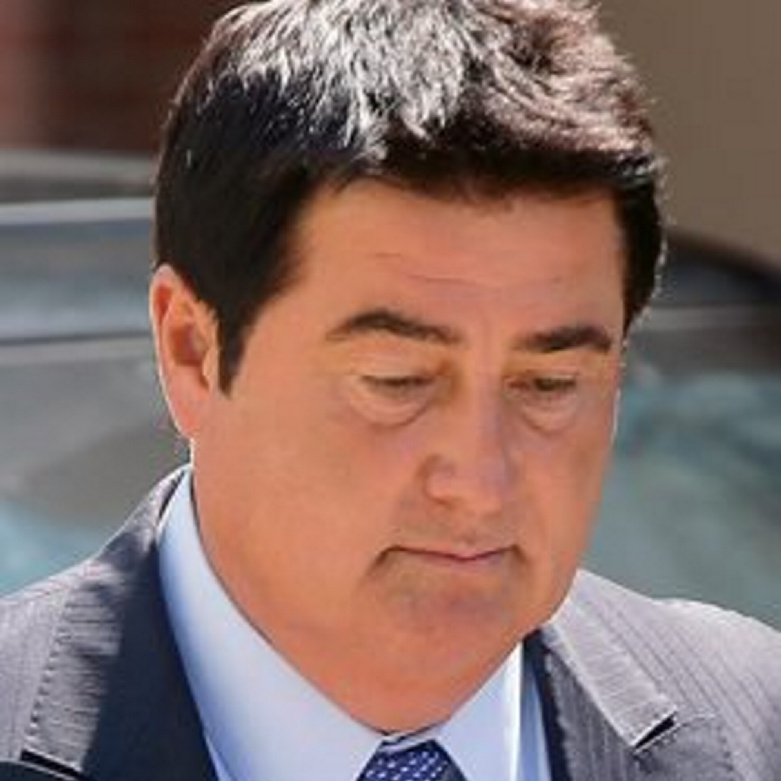Paul Hess pleaded not guilty in federal court Wednesday to charges he and former Portland developer Michael Liberty defrauded investors.
After a brief hearing, Hess was released on personal recognizance. The case is not expected to go to trial until February 2020.
Liberty, who built the Chandler’s Wharf condominiums and offices at 100 Middle St. in the late 1980s, is scheduled for his initial appearance in the case next week.
Hess and Liberty are charged with inducing investors to put money into shell companies set up by Liberty that purportedly would then be invested in Mozido, a company that Liberty founded in Texas to create software for people to do their banking on cellphones. But, prosecutors say, many of the shell companies were barred from investing in Mozido, and the investors’ money was actually used to fund Liberty’s lifestyle and pay commissions to Hess, who had told investors that he was not earning commissions.
Hess and Liberty also are facing civil charges filed by the Securities and Exchange Commission last April in connection with the alleged conspiracy. Along with four others and four shell companies, that suit alleges Liberty defrauded investors of nearly $50 million.
Hess lives in Massachusetts. Liberty, who grew up in Gray, lives in Florida, although he still has property in Maine. Hess faces a count of wire fraud conspiracy, four counts of wire fraud and a count of securities fraud. Each of the charges carries a penalty of up to 20 years in prison and fines of up to $5 million.
Prosecutors said that they also will be seeking restitution from Hess and Liberty.
Liberty faces 10 counts, including conspiring to launder money and making transactions with money derived from unlawful activity. He denied the charges in a statement issued by his lawyers when the criminal indictment was issued on Feb. 27. He and his co-defendants also have denied the charges in the suit brought by the SEC.
Prosecutors allege that between 2010 and 2017, Liberty and Hess told investors that their money would be used to help fund Mozido’s business operations. The investors were issued notes that purported to offer them the choice to eventually convert the investments into loans that would be repaid with interest or stock in Mozido.
The indictment also said that Liberty offered investors a “personal guarantee” against any losses that he was in no financial position to honor.
The indictment said less than half the money went to Mozido and the rest was used for personal expenses, including payments to Liberty’s ex-wife, payment for interior decorating and payment of part of a fine in an unrelated case in which Liberty and the SEC settled charges related to an investment fund that Liberty ran in Pennsylvania.
In the Hess case, prosecutors also told the court this week that Hess’s lawyer, Bruce Merrill, has conflicts of interest from representing a witness in the case and because he is being paid by Liberty.
Merrill said Wednesday that he represented the witness but said that payments from Liberty represent only part of the money he’s receiving to represent Hess. A hearing has been set for March 20 to make sure Hess understands the possible conflicts of interest and to ask if he still wants Merrill to represent him.
Hess’s initial public hearing was delayed Wednesday when Judge Magistrate John Rich recused himself.
Merrill had pointed out that Rich and Hess were classmates at Bowdoin College. Rich said he hadn’t recalled that until Merrill mentioned it Wednesday morning.
“I don’t think that Mr. Hess and I spent much time, if any time at all,” together while at the college, Rich said, but then said he would step away from the case to avoid any perception of partiality.
The hearing was conducted by District Judge George Z. Singal.
Edward D. Murphy can be contacted at 791-6465 or at:
emurphy@pressherald.com
Send questions/comments to the editors.



